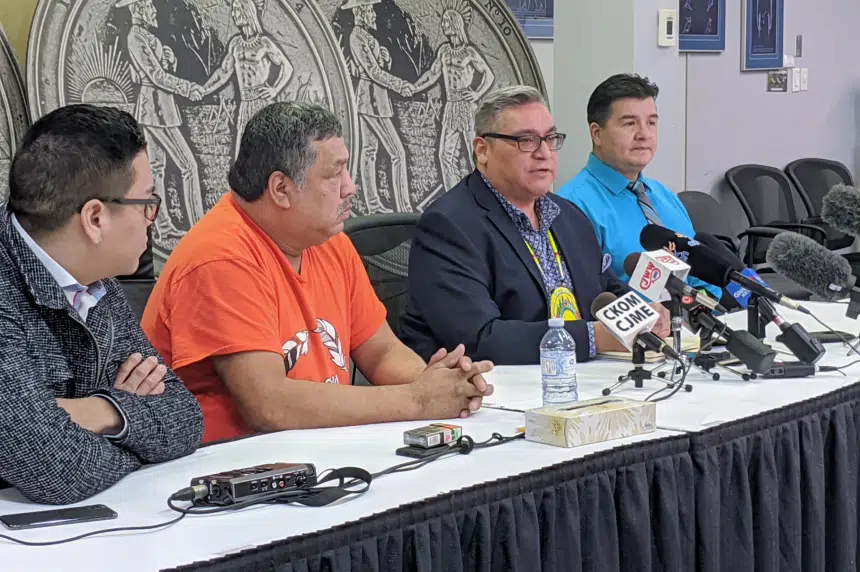The Federation of Sovereign Indigenous Nations plans to call on Ottawa for roughly $1.8 billion in funding for new legislation that would see child welfare jurisdiction handed back to First Nations across the country.
Bill C-92, an act respecting First Nations, Inuit and Métis children, youth and families, was passed in June but officially became law on Jan. 1.
FSIN Chief Bobby Cameron was joined by vice-chief David Pratt, Chief Calvin Straightnose of the Keeseekoose First Nation and Brady Owatch of the Carry the Kettle First Nation to push for funding from Ottawa to proceed with implementing the new law.
“The ultimate goal is to bring our children home to their First Nations, where they rightfully belong with (mother) and (grandfather) under our own language and culture system,” Cameron said.
Cameron hasn’t yet fulfilled his duties to officially request the money from Ottawa, but expects the proper paperwork to be filed sometime next week.
Cameron said roughly $360 million per year over the next five years makes up the large total. Money is needed for the implementation of new systems, planning, land-use agreements and infrastructure.
Furthering First Nations from the provincial child welfare act is also of high importance to members of the FSIN.
“We have certain governments across this country who have false misperceptions, false attitudes, who don’t like First Nation people, but yet want to keep our children in their own care systems,” Cameron said. “What for? It makes no sense.”
Cameron said it costs roughly $63,000 per year to care for each child.
Pratt estimates that roughly 10,000 Indigenous children in care systems, while the government estimates roughly 6,000 children are in care. Pratt said the disparity is due to the exclusion of certain groups of children, like adoptions and permanent guardians.
“Can you believe that (the province) apologized for the ’60s scoop, they apologized for residential schools, but Saskatchewan is still adopting our kids out? They’re still stealing our kids and they won’t even work with us to put a moratorium to stop those numbers,” Pratt said.







